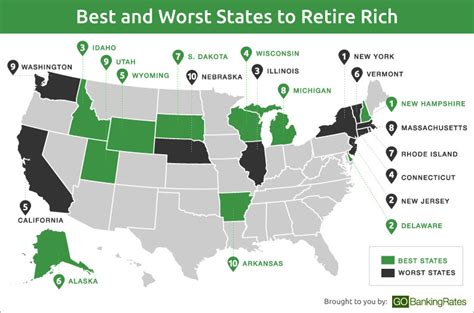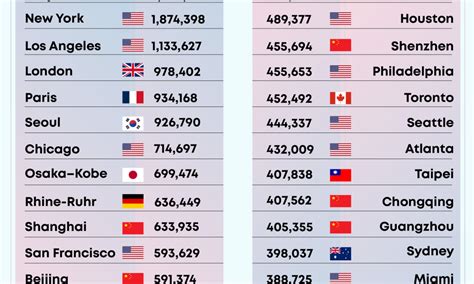
A family feud has erupted after a woman stepped in to help her mother with rent, following her millionaire sister’s refusal to provide financial assistance. The conflict highlights strained familial relationships and differing views on financial responsibility.
The dispute centers around a mother, identified only as “Marie” in the original Reddit post that ignited the controversy, who requires financial support to cover her living expenses. Her daughter, the original poster (OP), revealed that her sister, a millionaire, declined to assist, prompting the OP to step in and prepay several months of her mother’s rent. This act of generosity, however, sparked considerable tension within the family, exposing deeper-seated issues and resentments.
The OP explained the situation in detail, outlining her sister’s considerable wealth and perceived lack of willingness to help their mother. According to the OP, her sister’s refusal stemmed from a belief that their mother should manage her finances more effectively. The sister’s stance was that enabling the mother with financial assistance would only perpetuate what she viewed as irresponsible spending habits. This rationale, however, was met with criticism, especially given the sister’s affluent status.
The decision by the OP to prepay her mother’s rent was not taken lightly. She acknowledged the potential for creating further discord but felt compelled to act, given her sister’s inaction. “I know this might cause drama, but I went ahead and prepaid Mom’s rent for the next six months,” the OP stated. This act, while intended to alleviate their mother’s financial stress, inadvertently amplified the existing tensions within the family.
The core of the conflict lies in differing perspectives on filial responsibility and financial ethics. The millionaire sister believes in self-reliance and accountability, arguing that providing unconditional financial support can be detrimental in the long run. Conversely, the OP prioritizes her mother’s immediate needs and well-being, viewing financial assistance as a necessary act of familial support, especially given her sister’s capacity to provide it.
The situation is further complicated by potential underlying issues within the family dynamic. The Reddit post suggests that the siblings may have differing views on their mother’s past behavior and her entitlement to financial assistance. These unresolved issues contribute to the complexity of the conflict and make finding a resolution more challenging. The family feud is not solely about money; it’s about values, expectations, and the complex web of relationships that bind a family together.
The original Reddit post quickly gained traction, sparking widespread debate about familial obligations, financial responsibility, and the ethics of wealth. Many commenters expressed support for the OP’s decision, praising her for stepping in to help her mother when her sister refused. Others, however, acknowledged the complexities of the situation, recognizing the sister’s right to manage her own finances as she sees fit.
The debate also touched on the broader issue of wealth inequality and the responsibilities that come with affluence. Some argued that individuals with significant wealth have a moral obligation to assist their less fortunate family members, while others maintained that financial decisions are a personal matter and should not be subject to external judgment.
The family feud serves as a microcosm of larger societal discussions about wealth distribution, familial duty, and the challenges of navigating complex family relationships in the context of financial disparities. It underscores the importance of open communication, empathy, and a willingness to understand differing perspectives, even when those perspectives clash with one’s own values.
The long-term consequences of this family feud remain uncertain. It is possible that the conflict will eventually subside, and the siblings will find a way to reconcile their differences. However, it is also possible that the feud will deepen, further straining their relationship and creating lasting divisions within the family. The outcome will likely depend on the willingness of all parties to engage in constructive dialogue and find common ground, despite their differing views on financial responsibility and familial obligations.
The incident also raises questions about the role of social media in amplifying personal conflicts. The decision to share the family feud on Reddit brought the situation to the attention of a global audience, subjecting the individuals involved to public scrutiny and judgment. While social media can provide a platform for sharing experiences and seeking support, it can also exacerbate existing tensions and create new challenges for resolving personal disputes.
The situation highlights the delicate balance between individual autonomy and familial responsibility. While individuals have the right to manage their own finances as they see fit, they also have a responsibility to consider the needs and well-being of their family members, particularly when those family members are vulnerable or in need of assistance. Finding the right balance between these competing considerations is often a complex and challenging task, requiring careful thought, empathy, and a willingness to compromise.
This particular case underscores the emotional and relational complexities that often accompany financial issues within families. Money is not just a practical resource; it is also a symbol of love, care, and responsibility. When financial decisions are perceived as unfair or insensitive, they can trigger deep-seated resentments and create lasting damage to family relationships. Therefore, it is essential to approach financial discussions with sensitivity, empathy, and a willingness to understand the perspectives of all parties involved.
In conclusion, the family feud sparked by the millionaire sister’s refusal to help her mother highlights the intricate interplay of financial responsibility, familial duty, and personal values. It serves as a reminder of the importance of open communication, empathy, and a willingness to navigate complex family relationships with sensitivity and understanding. The resolution of this conflict will likely depend on the ability of all parties involved to find common ground and prioritize the long-term health of their family relationships over their individual financial beliefs. The case study provides a poignant insight into the ethics of wealth and how differing views on its distribution can trigger conflict within the family unit. It further emphasizes the role of societal expectations, filial obligations, and the impact of individual choices on the delicate fabric of family bonds.
The incident underscores the importance of proactive financial planning and communication within families to avoid potential conflicts in the future. Establishing clear expectations and guidelines for financial assistance can help prevent misunderstandings and ensure that everyone is on the same page. It also highlights the value of seeking professional financial advice to help families navigate complex financial decisions and develop strategies for managing their resources effectively.
The family’s situation mirrors similar conflicts observed across different socioeconomic backgrounds, pointing to a universal struggle in balancing personal autonomy with familial duties. The case study invites further investigation into the societal norms surrounding financial support within families and the influence of cultural values on these expectations. It prompts reflection on the role of wealth in shaping individual identities and the potential for financial disparities to exacerbate existing tensions.
The drama that has unfolded serves as a stark reminder of how deeply intertwined finances and relationships are. Money is often more than just a means to an end; it can represent security, love, and even control. The situation also highlights the evolving understanding of family and the complex web of expectations that often accompany these relationships. As families become more diverse and individualistic, navigating these expectations becomes an ever-evolving challenge.
In an age where transparency is increasingly valued, the sharing of such a personal conflict online opens the door for public discourse and offers a valuable lesson for others in similar situations. It highlights the potential for social media to both exacerbate conflicts and offer a platform for support and shared experiences. However, it also raises concerns about privacy and the ethical implications of airing family matters in the public domain.
Ultimately, the resolution of this family feud may depend on the individuals involved being able to find common ground and understanding, regardless of their differing financial philosophies. It serves as a poignant reminder that family relationships are often more valuable than material wealth, and that communication, empathy, and a willingness to compromise are essential for maintaining strong and healthy bonds.
The incident also serves as a cautionary tale about the potential pitfalls of allowing financial disparities to dictate family dynamics. It underscores the importance of prioritizing relationships over material possessions and of fostering a culture of empathy and understanding within families. While financial resources can certainly provide security and comfort, they should not be allowed to overshadow the values of love, respect, and mutual support.
The family feud, in essence, is a microcosm of broader societal debates about fairness, equality, and the responsibilities that come with wealth. It prompts reflection on the values that we prioritize as individuals and as a society, and it underscores the importance of considering the impact of our choices on those around us, particularly our family members. The narrative serves as a compelling reminder of the enduring power of human relationships and the challenges of navigating complex family dynamics in an increasingly interconnected and financially driven world.
Frequently Asked Questions (FAQ)
- What is the main conflict in the news article?
The main conflict is a family feud that erupted after a woman stepped in to pay her mother’s rent, following her millionaire sister’s refusal to provide financial assistance. This highlights differing views on financial responsibility within the family.
- Why did the millionaire sister refuse to help her mother financially?
According to the original poster (OP), the millionaire sister believes that their mother should manage her finances more effectively and that providing financial assistance would only enable irresponsible spending habits. The sister essentially felt that her mother was not accountable and that enabling her only worsened the situation.
- What action did the other sister (the OP) take, and what was the result?
The OP prepaid her mother’s rent for six months, intending to alleviate her mother’s financial stress. However, this act amplified existing tensions within the family and sparked a significant feud with her sister.
- What are the differing perspectives on filial responsibility in this situation?
The millionaire sister believes in self-reliance and accountability, arguing against unconditional financial support. The OP prioritizes her mother’s immediate needs, viewing financial assistance as a necessary act of familial support, especially given her sister’s wealth.
- What broader issues does this family feud highlight?
The feud highlights issues such as wealth inequality, familial duty, the ethics of wealth, and the challenges of navigating complex family relationships in the context of financial disparities. It also raises questions about the role of social media in amplifying personal conflicts.
-
How did the Reddit community react to the original post? The Reddit community was divided, with many supporting the OP’s decision to help her mother, while others acknowledged the sister’s right to manage her finances as she sees fit. The debate also touched on broader issues of wealth inequality and moral obligations.
-
What are the potential long-term consequences of this family feud? The long-term consequences are uncertain. The conflict could subside, leading to reconciliation, or it could deepen, further straining the relationship. The outcome depends on the parties’ willingness to communicate constructively and find common ground.
-
What does the situation reveal about the relationship between finances and family dynamics? The situation reveals that money is more than just a resource; it’s a symbol of love, care, and responsibility. Financial decisions perceived as unfair can trigger resentment and damage family relationships.
-
What is the significance of sharing this personal conflict on social media? Sharing the conflict on social media brought it to a global audience, subjecting the individuals to public scrutiny. While social media can provide support, it can also exacerbate tensions and create new challenges for resolving personal disputes.
-
What lesson can be learned from this family feud regarding proactive financial planning? The feud underscores the importance of proactive financial planning and communication within families. Establishing clear expectations for financial assistance can prevent misunderstandings and ensure everyone is on the same page.
-
How does this situation relate to broader societal discussions about wealth and responsibility?
The family feud is a microcosm of larger societal discussions about wealth distribution, familial duty, and the challenges of navigating complex family relationships in the context of financial disparities. It underscores the importance of open communication, empathy, and a willingness to understand differing perspectives, even when those perspectives clash with one’s own values.
- What is the core issue that is causing the family feud?
The core issue is the differing perspectives on filial responsibility and financial ethics. The millionaire sister believes in self-reliance and accountability, arguing that providing unconditional financial support can be detrimental in the long run. Conversely, the OP prioritizes her mother’s immediate needs and well-being, viewing financial assistance as a necessary act of familial support.
- How does the article characterize the millionaire sister’s perspective on the situation?
The article characterizes the millionaire sister’s perspective as one of self-reliance and financial responsibility. She believes her mother should manage her own finances and that providing financial assistance would only perpetuate irresponsible spending habits. She seems to value personal accountability and doesn’t want to enable perceived poor financial management.
- How does the article describe the OP’s motivation for helping her mother?
The article describes the OP’s motivation as prioritizing her mother’s immediate needs and well-being. She views financial assistance as a necessary act of familial support, especially given her sister’s capacity to provide it. She seems driven by a sense of compassion and a desire to alleviate her mother’s financial stress.
- What does the article suggest about underlying issues within the family dynamic?
The article suggests that potential underlying issues within the family dynamic may be contributing to the conflict. The siblings may have differing views on their mother’s past behavior and her entitlement to financial assistance. These unresolved issues add complexity and make finding a resolution more challenging.
- What are some of the specific arguments presented by commenters on the Reddit post?
Some commenters supported the OP’s decision, praising her for helping her mother when her sister refused. Others acknowledged the complexities of the situation, recognizing the sister’s right to manage her own finances. The debate also touched on the broader issue of wealth inequality and the responsibilities that come with affluence.
- What are the long-term challenges this family might face due to the feud?
The family might face strained relationships, lasting divisions, and difficulty reconciling their differing views on financial responsibility and familial obligations. The feud could create ongoing resentment and make future communication and cooperation more challenging.
- How does the article frame the broader societal implications of this family conflict?
The article frames the family feud as a microcosm of larger societal discussions about wealth distribution, familial duty, and the challenges of navigating complex family relationships in the context of financial disparities. It underscores the importance of open communication, empathy, and a willingness to understand differing perspectives.
- What is the article’s tone regarding the family’s situation?
The article maintains a formal, informative, and neutral tone. It presents the facts without adding personal opinions or interpretations. The language is clear and understandable, aiming to provide a balanced perspective on the conflict.
- What preventative measures could families take to avoid similar conflicts related to financial support?
Families could establish clear expectations and guidelines for financial assistance, engage in open and honest communication about financial matters, seek professional financial advice, and foster a culture of empathy and understanding within the family. Proactive financial planning and transparent communication can help prevent misunderstandings and ensure everyone is on the same page.
- Does the article take a position on whether the millionaire sister should have helped her mother?
No, the article does not take a position. It presents both sides of the argument – the sister’s right to manage her wealth and the other sister’s feeling of responsibility to help their mother – and allows the reader to form their own opinion.
- How does the article characterize the financial situation of the mother in question?
The article indicates that the mother requires financial assistance to cover her living expenses, particularly rent. It implies that she may not have sufficient resources to support herself independently.
- What role does guilt or obligation potentially play in the actions of the sister who decided to help?
The sister who helped likely felt a sense of obligation and perhaps guilt over her mother’s financial situation, especially given her sister’s affluence. This sense of duty appears to have outweighed her concerns about causing family drama.
- What other factors, besides money, could be contributing to the family feud?
Other factors could include past grievances, differing perceptions of fairness, power dynamics between the siblings, and the mother’s relationship with each daughter. These non-financial issues can significantly impact how financial decisions are perceived and handled.
- How could the family potentially resolve this conflict?
The family could potentially resolve the conflict through open and honest communication, mediation, setting clear boundaries, and focusing on rebuilding trust. A willingness to understand each other’s perspectives and find common ground is essential for reconciliation. Perhaps a family meeting facilitated by a neutral third party could help.









